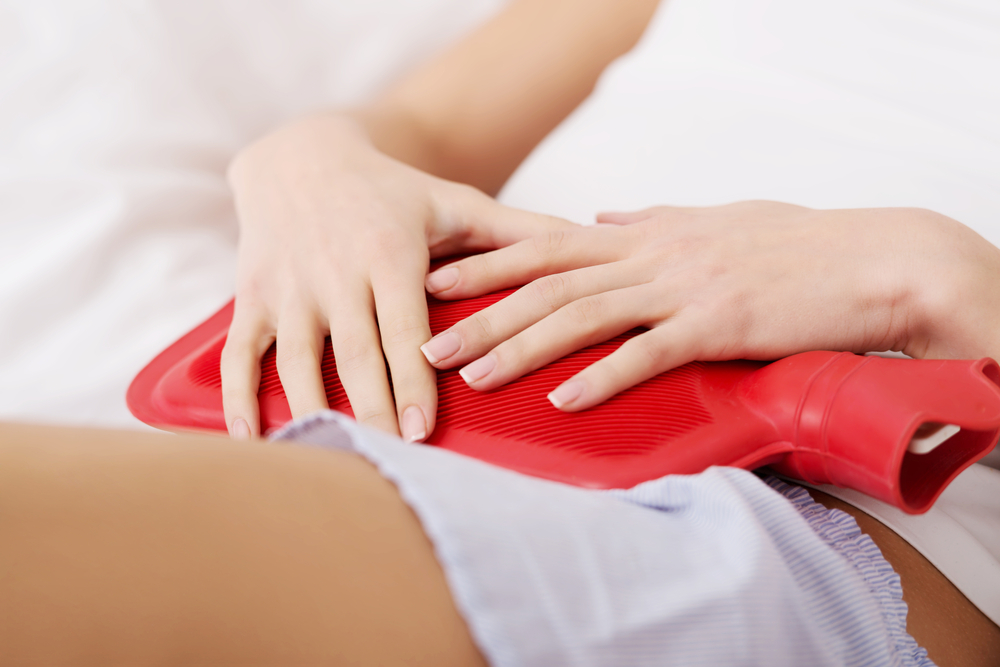PMS aka Pre Menstrual Syndrome that general hot-garbage feeling you get in the days before or during your period arrives. Whether its feeling cramps or emotional changes, there’s a lot you can go through around that time in the month. PMS is basically the combination of symptoms that many women suffer from a week or so before their period. Symptoms appear before your period starts (as many as five days) and will disappear during your periods. Symptoms can affect your body AND your brain, and their intensity can vary a lot from person to person. And since it's so common, you might assume you just have to deal with the combination of cramps, bloating, headaches, or mood swings. But your period's going to be around for long, like decades — so don't just resign yourself to feeling crummy every month. Here's how to tell if your PMS is out of control and how to get it in check.
1. Period Cramps Are Seriously Painful
Cramps are a normal part of your period cycle, but they shouldn't leave you doubled over in agony. Some over the counter pills like Ibuprofen or Meftelspas can save you just as you get the first hint of cramping, thereby lessening the pain. If it doesn't help you should refer to a gynecologist who may want to check for an underlying issue like endometriosis or irritable bowel syndrome, both of which can cause pelvic pain.
2. Too Many Mood Swings
It's normal to feel a little crappy right before your period starts, but if you're stirring up huge levels of drama every month, you may be dealing with premenstrual dysphoric disorder (PMDD), a severe form of PMS that can cause emotional symptoms like depression, anxiety, anger, and difficulty concentrating. Symptoms include crying , yelling fro no reason. Fluctuating hormones can make underlying depression or anxiety worse, so if you're feeling kind of blah the rest of the month too, talk to your doctor so that these problems don't ruin your social life.
3. Killer Headaches
As if PMS weren't annoying enough, the hormonal changes can trigger severe , throbbing headaches like migraines that can stick around for up to three days. If you're getting headaches on the regular, your doctor as keeping your hormones in check is very important.
